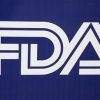The doctor would like to start this week’s guidance by extending best wishing for those readers who celebrate Thanksgiving. I hope you have a fabulous Turkey Day with your families. The doctor is sure that some of you might remember the 1970’s television commercial with the tag line, “It is not nice to fool Mother Nature” (Chiffon margarine, as the old doc recalls). Guess what? It is not nice to fool the FDA either. While traversing through the FDA’s website, the doctor stumbled upon a Department of Justice (DOJ) press release that reflects the opening of a can of some serious regulatory whoop ass, with some help from the agency’s good friends from DOJ, on an establishment that failed to recognize that “no-means-no.” Any Chief Jailable officer (CJO) willing to tempt fate and choose to ignore an agreement made with FDA pertaining to product clearances or approvals is clearly a meshuggener (look-it up). Enjoy!
Extraction from DOJ Press Release – November 7, 2016
“Pennsylvania-based medical device manufacturer Biocompatibles Inc., a subsidiary of BTG plc, pleaded guilty today to misbranding its embolic device LC Bead and will pay more than $36 million to resolve criminal and civil liability arising out of its illegal conduct, the Justice Department announced today. LC Bead is used to treat liver cancer, among other diseases…As part of the criminal resolution; Biocompatibles will pay an $8.75 million criminal fine for the misbranding of LC Bead and a criminal forfeiture of $2.25 million.
“In addition, Biocompatibles will pay $25 million to resolve civil allegations under the False Claims Act that the company caused false claims to be submitted to government healthcare programs for procedures in which LC Bead was loaded with chemotherapy drugs and used as a drug-delivery device.”
Just the Facts
In 2004, the FDA granted clearance for a device employed for embolization, with assurances from the manufacturer (Biocompatibles, Inc., a subsidiary of BTG) that “under no circumstance” would the device be marketed or used as a drug delivery device. However, according to the DOJ press release, two years later Biocompatibles began marketing the device for drug delivery through a third-party distributor in the United States. Ouch, talk about wanting to poke a sleeping bear in the eye with a sharp stick. Furthermore, sales reps informed healthcare providers that the device increased chemotherapy levels delivered during treatment aimed at liver tumors. However, one tiny detail was missing: The lack of FDA clearance for the expanded indication for use. As a result, the FDA and DOJ did what they do best to an offending establishment that fails to play nicely in the FDA’s sandbox or by the FDA’s rules—they hit them in their wallet, and man that is exactly what happened, to the tune of $36 million big ones. Ouch!
Note: According to the DOJ’s press release, Biocompatibles filed an application with the agency for approval of their device as a “drug-eluting bead combination product.” Unfortunately for Biocompatibles, the agency’s decision was to not accept their application because the clinical studies did not provide adequate evidence of a therapeutic benefit. Biocompatibles was notified accordingly. Ouch!
Compliance for Dummies
For this week’s guidance, Dr. D is going climb upon his pulpit and pontificate, at least just a little bit. The old doc finds it difficult to comprehend why anyone would want to poke a sleeping bear in the eye with a sharp stick or intentionally ignore the FDA and market/enter into commerce a medical device that has not been cleared or approved in accordance with Part 807, or Part 814 requirements. If Dr. D had his choice, the sleeping bear seems like a better option.
From a compliance standpoint, as the title of this week’s guidance suggests, “no-means-no!” If the agency has not granted clearance or approval for a device, then offending establishments risk great peril if the decision is made to enter a device into commerce or promote an off-label use. Eventually, the FDA will magically appear in an offending device establishment’s lobby. It may be that knock on the front door and the presenting of the Form 482 authorizing their facility inspection. It may be the racking up of a significant number of medical device reports (MDRs) for a device that FDA does not recognize as cleared or approved. It just might be a really ticked-off competitor that actually has device clearance or approval. It just may be bad karma. Regardless, the FDA is always watching, not unlike 1984 (George Orwell Novel).
Takeaways
For this week’s guidance, the doctor can only offer one possible takeaway: Device establishments should always do the right thing. Quality, regulatory and statutory compliance is never optional in a regulated industry. It is always acceptable to push back if an establishment disagrees with the agency’s decisions regarding device clearance or approvals. There is a pathway for appealing decisions. However, as most industry professionals realize, it is better to reach common ground and provide the FDA with the data they request. If the agency’s request is truly outrageous, question it, but please be tactful. Yes, tactful coming from Dr. D is a difficult concept to comprehend, considering Dr. D is still a United States Marine at heart. As the doctor’s family is always quick to point out, “Once a Marine, Always a Marine!”
In closing, thank you again for joining Dr. D, and I hope you found value in the guidance provided. Until the next installment of DG, cheers from Dr. D., and best wishes for continued professional success.
References
- Code of Federal Regulation. (April 2015). Title 21 Part 820: Quality system regulation. Washington, D.C.: U.S. Government Printing Office.
- Code of Federal Regulation. (April 2015). Title 21 Part 803: Medical device reporting. Washington, D.C.: U.S. Government Printing Office.
- Devine, C. (2011). Devine guidance for complying with the FDA’s quality system regulation – 21 CFR, Part 820. Charleston, SC: Amazon.
- Devine, C. (2013). Devine guidance for managing key attributes of a FDA-compliant quality management system – 21 CFR, Part 820 Compliance. Charleston, SC: Amazon.
- FDA. (November 2016). Inspections, Compliance, Enforcement, and Criminal Investigations. Medical device maker Biocompatibles pleads guilty to misbranding and agrees to pay $36 million to resolve criminal liability and false claims act allegations. Accessed November 16, 2016. Retrieved from http://www.fda.gov/ICECI/CriminalInvestigations/ucm528460.htm





